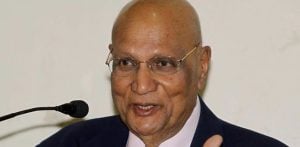She warned that foreign influence was shaping these events.
Maria B has become the subject of an inquiry by the National Cyber Crime Investigation Agency (NCCIA) after a complaint was lodged against her.
According to reports, the inquiry followed an application submitted by Naeem Butt, also known as Seema Butt.
Seema accused the designer of using social media to spread propaganda against the transgender community and causing emotional harm to its members.
Officials confirmed that the NCCIA has opened a formal inquiry and summoned Maria B to appear before investigators on August 26, 2025.
The controversy gained momentum when Maria B uploaded video clips of a private gathering.
She called the event “satanic” and claimed minors had been present.
Maria argued that such gatherings were attempts to normalise values she described as inconsistent with cultural and religious norms.
She warned that foreign influence was shaping these events.
Maria B also insisted that despite criticism and expected backlash, she would continue to speak out against such activities in the future.
Soon after the videos went public, police arrested several transgender individuals who were reportedly associated with the event.
The arrests stirred debate as videos from the gathering, allegedly attended by more than 50 people, circulated widely across social media platforms.
However, the matter was quickly brought before a Lahore magistrate who dismissed the case, ruling that the arrests were based on weak evidence.
The court observed that no eyewitnesses were produced and no proper statements were recorded.
Furthermore, no official documentation justified police entry onto private property.
It also noted that the case appeared to be constructed on “forged and concocted facts”, denying police requests for a 10-day physical remand.
As a result, all detained individuals were released, with their lawyer Haider Butt confirming that no grounds for further detention had been established.
Meanwhile, transgender rights activist Nayyab Ali rejected the allegations tied to the gathering.
She stressed that those present in the videos were not linked with the organised rights movement.
Nayyab also questioned whether Maria B’s act of circulating the videos might itself be categorised under promoting “fahashi”.
She said:
“If it’s fahashi (vulgarity), then who spread it to millions? Maria B did. That’s a crime itself.”
Human rights activists have since raised concerns about Pakistan’s morality laws, pointing out their vague language.
One said: “While obscenity laws exist, their vague wording often leads to arbitrary enforcement, disproportionately targeting marginalised communities.”






























































